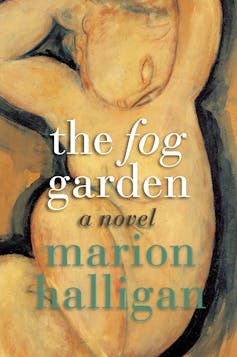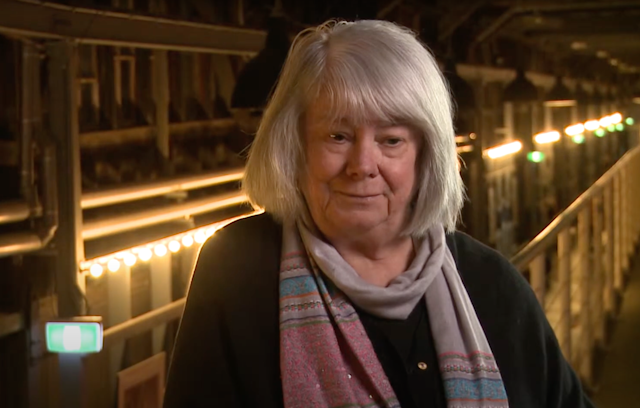Marion Halligan, who died on February 19 at the age of 83, was one of Australia’s finest authors. She has more than 20 books to her credit, including novels, short story collections and non-fiction. Her novels are compulsively readable and full of ideas.
Halligan was born and raised in Newcastle, but for most of her life she lived in and wrote about Canberra. She conveyed a strong sense of the place, with Lake Burley Griffin at the centre, “cool and severe and beautiful” as she described it in her 2003 novel The Point.

I interviewed Halligan about The Point for Radio Adelaide and later published the interview in Antipodes. She was audibly taken aback when I likened her work to that of the great British novelist Iris Murdoch. Although she admitted being an admirer of Murdoch, she had not thought of her as an influence.
But for me the resemblance was striking. What I saw was not imitation, but a shared attitude to the capacity of novels to explore the big questions of life, without sacrificing their readability. In our interview, Halligan said:
It seems to me that novels are very much about this question of how shall we live, not answering it but asking it, and what novelists do is look at people who live different sorts of lives, and often people who live rather badly are a good way of asking the question.
Another attribute Halligan shared with Murdoch was the richness of her web of allusions. In Halligan’s case, this was formed from the multitude of cultures and histories that make up Australian life in the 21st century. Her characters are embedded in their worlds. She said that she believed in giving her readers
a whole lot of concrete things to hang on to. […] Lakes and trees and food and maybe buildings. […] Then when you’ve done that you can come in with the ideas and abstract things, the unconcrete things, the emotions, and people will trust you.
Halligan never wrote the same novel twice. The Point is particularly Murdochian in its structure and tone. Lovers’ Knots (1992) is a historical novel, covering a century of family stories. The Apricot Colonel (2006) and its sequel Murder on the Apricot Coast (2008) are witty novels in the “whodunit” vein, playing with the familiar formula in clever ways.
Unlike many novelists, Halligan also wrote excellent short stories, publishing five collections. Intriguing and mordant, always intelligent, the stories in collections such as The Hanged Man in the Garden (1989) and Shooting the Fox (2011) are well worth revisiting.

Halligan suffered much heartache in her personal life and wrote about it directly in fiction and memoir. Her novel The Fog Garden (2001) was written after the death of her first husband. It is a moving tribute to a beloved partner, and a searching and honest account of adjusting to life without him.
I recall her telling me that it was a novel she needed to write, so she put her other projects on hold until it was done.
Halligan’s last book, Words for Lucy, published in 2022, was written for her daughter, who died in 2004.
A unique contribution
A consummate novelist and a brilliant wordsmith, Halligan was also a woman of great warmth and generosity. I met her several times. I visited her home in Canberra and partook of her hospitality. That she was an advocate for “slow food” – not necessarily complicated food, but “food with attention paid” – was obvious.
Her kitchen was large and welcoming, replete with wonderful aromas. Her non-fiction book The Taste of Memory (2004) celebrated food and its part in our lives and networks of love and memory.
Reviewing The Apricot Colonel in 2006, I wrote that “in Marion Halligan’s world, a male character who bottles apricots, chargrills vegetables, and speculates about the derivation of the word ‘idyll’ is never going to be a villain”.
There are not many generalisations that could be made about her, but I stand by this one.
Marion Halligan was a unique contributor to Australian literature and culture. She served as chair of the Literature Board of the Australia Council and received numerous awards for her writing, including the ACT Book of the Year, which she won three times. In 2022, the ACT Writers Centre was renamed Marion in recognition of her literary achievements and active support of local writers.
She was made a Member of the Order of Australia (AM) in 2006 “for service to literature as an author, to the promotion of Australian writers and to support for literary events and professional organisations”, Halligan has nevertheless not yet been the subject of a book-length study, unlike many novelists of her generation.
I commented in our interview that readability seems somewhat disreputable among literary scholars, and we agreed that was strange – and regrettable.
Halligan wrote movingly about death and dying, about loving and losing. She suffered the loss that we now suffer, losing her. She will be missed.

